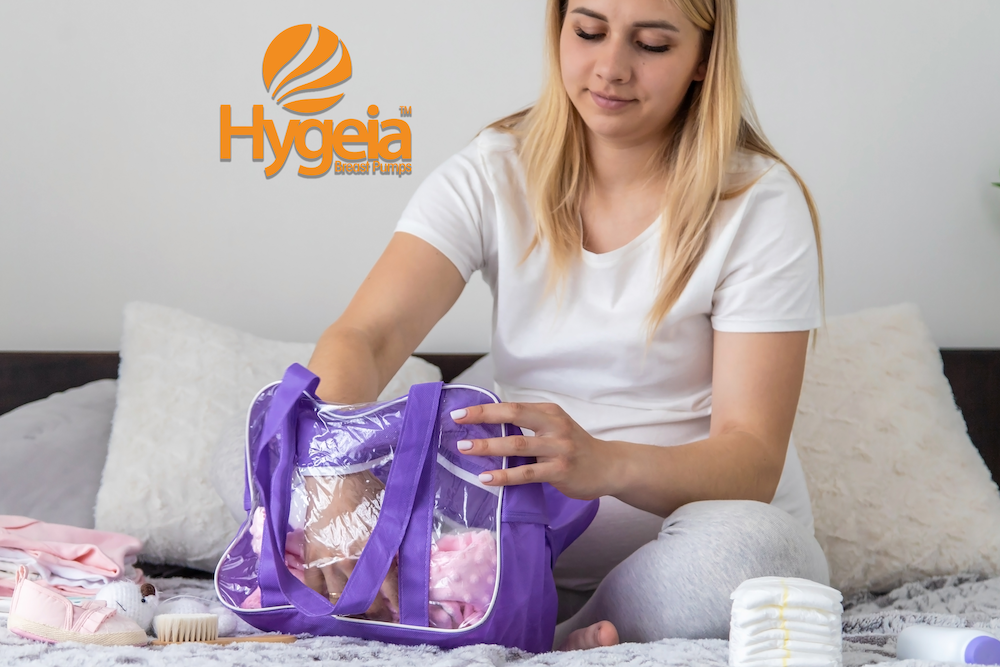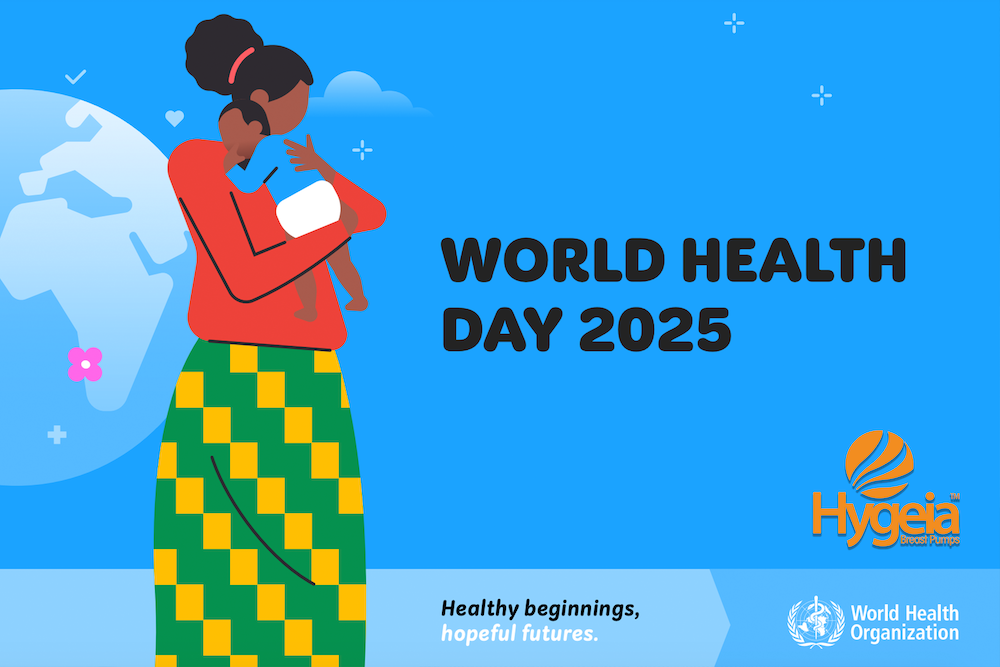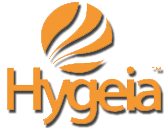
Have you ever stared into that freshly pumped bottle and think, “Huh, today’s batch is looking a little…golden?”
Or maybe a hint of blue?
Welcome to the surprisingly colorful world of breast milk, mama!
It’s like nature’s little art project, and while it might have you raising an eyebrow now and then, most of the time, those hues are totally normal and even tell a fascinating story about what’s nourishing your little one. This blog post will be your breast milk color decoder to help you navigate this liquid rainbow with confidence. Let’s dive into the shades and what they typically mean, so you can feel like a total pro when it comes to your amazing milk!
What can impact the breast milk color?
There are three major things that can impact your breastmilk having a slightly different color than the usual and expected white. This includes what you have eaten, the state of your health (or presence of illness), the stage of the milk, and how the milk has been stored, if at all.
Yellow or Orange: The Early Milk
Need to worry? No!
In the first few days after birth, your milk, called colostrum, is often yellow or deep orange. This color comes from beta-carotene, a nutrient that’s good for your baby. Colostrum is packed with antibodies and is very important for your newborn’s health. As your milk transitions, it may still have a yellow tint for a while. And you might also note that consuming turmeric can also turn your breast milk golden.
White or Creamy: Mature Milk
Need to worry? No!
Around two weeks after birth, your milk will likely become white or creamy. This is mature milk. The fat content in the milk gives it this color. Milk expressed at the end of a feeding or pumping session, called hindmilk, is usually whiter because it has more fat.
Thin and Bluish: Foremilk
Need to worry? No!
At the start of a feeding or pumping session, the milk might look thin and even a little bluish. This is foremilk. It has more water and lactose and helps to quench your baby’s thirst. This coloring can also indicate a higher level of electrolytes in your milk.
Green: When It Might Appear
Need to worry? No!
Sometimes, breast milk can have a green tint. This is often due to something you ate, like green vegetables such as spinach or kale. Green food coloring in drinks or supplements can also cause this change, but you should note that some medications can have the same effect.
Pink or Red: Usually a Little Blood
Need to worry? Not likely.
Seeing pink or red milk can be alarming, but it’s often not a serious problem. The most common reason is a small amount of blood. This can happen if your nipples are cracked or sore, which is common in the early days. “Rusty pipe syndrome,” where extra blood flow to the breasts causes a little blood in the early milk, can also cause this. It usually goes away on its own. Sometimes, broken blood vessels from pumping can also cause a pink or red color.
Brown or Rust-Colored Milk: Uncommon
Need to worry? No.
Brown or rust-colored milk is usually old blood. This can also be related to rusty pipe syndrome.
When to Talk to Your Doctor
While most breast milk color changes are normal, there are times to seek advice from a doctor or lactation consultant. If you see pink or red milk that doesn’t go away quickly or is more than just a little, it’s best to get it checked. Brown or black milk, especially if you’re not taking any medications that could cause it, should also be discussed with a healthcare provider or lactation consultant. If you or your baby have other symptoms along with a color change, like breast pain or fever, seek medical advice.
Understanding the different colors of your breast milk can help you feel more confident during your breastfeeding journey. At Hygeia Health, we’re committed to supporting you with information and the right tools. We believe every mother deserves access to quality breast pumps. Did you know that many insurance plans cover the cost of a breast pump? Hygeia Health can help you navigate this process and see if you qualify for a free, high-quality breast pump. Having a reliable pump can make your breastfeeding experience smoother, no matter what color your milk may be.
Ready to see if you can get a breast pump covered by your insurance? Apply today and let Hygeia Health support your breastfeeding goals.

Breast pumping has been a lifesaver for many moms, for a various number of reasons in the journey of motherhood. Whether it be something planned, like returning to work or the need to travel, or an unplanned event like a NICU stay, breast pumping is a gift that allows mothers to continue breastfeeding in so many circumstances. That doesn’t mean pumping doesn’t come with its challenges, milk expression being one such challenge.
No matter the advanced technology of a pump, it cannot fully replicate a baby’s unique latch. Expressing milk, even when using a breast pump, can sometimes prove difficult. If you are dealing with issues expressing, use these tips to help you overcome the challenge and maximize your milk production.
Understanding the Basics of Milk Expression
Proper Latch: Ensure your nipples are centered in the pump flange. A poor fit can reduce milk flow. Use our sizing guide to be sure you are using the best size flange.
Comfortable Positioning: Find a comfortable position to pump, whether it’s sitting, reclining, or using a hands-free pumping bra. Consider what positions work best when actually feeding your baby and try those as well.
Relaxation Techniques: Stress and anxiety can hinder milk flow. Practice relaxation techniques like deep breathing or meditation before pumping. Be sure you are in an environment where you feel comfortable, which for many is somewhere alone where you won’t be disturbed.
Boosting Milk Expression
Warm Compresses: Applying a warm compress to your breasts before pumping can help stimulate milk flow. You might try this for a few minutes before you begin the pumping process and continue while pumping, if possible.
Massage: Gently massaging your breasts can help encourage milk release.
Skin-to-Skin Contact: When possible, spend some time skin-to-skin with your baby before pumping. This can help stimulate the let-down reflex.
Pumping Effectively
Pumping Schedule: Establish a regular pumping schedule to maintain your milk supply. Irregularity could be a cause for your body to lessen its supply.
Pumping Frequency: Pump every 2-3 hours during the day, and once or twice at night. Even if your supply has dropped, stick with the frequency to encourage your body to produce more milk.
Pumping Duration: Pump for 10-15 minutes per session, or until your milk flow slows down.
Pumping Techniques: Experiment with different pumping techniques, such as power pumping or alternating between breasts.
Seeking Professional Help
If you continue to experience difficulties with milk expression, consult with a lactation consultant. They can assess your pumping technique, identify any underlying issues, and provide personalized advice.
We are committed to supporting mothers on their breastfeeding journey, particularly those choosing or needing to breast pump. Our high-quality breast pumps are designed to make pumping easier and more efficient. Our pumps are meant to support all mothers, including those struggling with milk expression.
To apply for a 100% insurance-covered breast pump, simply visit our website and fill out the application form. We’ll review your application and contact you with the next steps.
By following these tips and seeking professional help when needed, you can overcome challenges and successfully express your milk. Remember, patience and persistence are key.

This year’s World Health Day, celebrated every April 7, is set to shine a crucial spotlight on the health and survival of women and newborns. There are critical challenges facing the health of both, particularly in regions where access to essential care is limited. As we celebrate this significant day led by the World Health Organization (WHO), it’s vital to recognize the interconnectedness of maternal well-being and infant health, with breastfeeding playing a pivotal role in both.
Strengthening Support Systems: Education and Resources
The WHO is highlighting the need for strong health systems and equal access to care. By most recent estimates, close to 300,000 women lose their life due to pregnancy or childbirth each year. Additionally, over 2 million babies die in their first month of life. That’s not to mention that around 2 million more are stillborn. It’s staggering and heartbreaking. This year’s World Health Day campaign is urging governments, donors and the health community to invest in proven, high-impact interventions, as part of efforts to improve overall quality of care.
From pregnancy related services to lifesaving emergency obstetrics; from special care for small and preterm babies to the support of mental health, malnutrition and an increasing burden of noncommunicable diseases; the WHO plans to highlight it all during the campaign.
Remembering the Importance of Breastfeeding
Hygeia and The WHO share similar missions when it comes to mothers and babies. The WHO’s focus on reducing maternal and newborn mortality aligns with Hygeia’s commitment to empowering breastfeeding mothers. Breastfeeding is not just a feeding choice; it’s a cornerstone of infant health and development. It provides crucial nutrients and immune support. However, for many mothers, especially those facing challenging circumstances, access to an effective and reliable tool like a high-quality breast pump can make or break a situation.
Hygeia believes that access to quality pump should be a right, not a privelge. Ensuring mothers have means to provide their babies with breast milk, directly improves a newborn’s survival and health trajectory. This is why Hygeia is dedicated to bridging this gap for mother’s struggling to breastfeed. We offer hospital-grade breast pumps and specialize in helping moms navigate this process and maximize their insurance benefits. Let us streamline the process and we will determine your eligibility for obtaining a 100% insurance-covered breast pump.
On World Health Day 2025 we continue to focus on the health of mothers and newborns. We are proud to play a part in the vital endeavor to help every mother give her baby the best possible start.

With your breastfeeding journey on the horizon, researching breast pump options is naturally going to be on your list of to-dos.The array of options available can be daunting for new mothers, though. Understanding the distinctions between each type is crucial for a successful pump choice.
It’s common to feel overwhelmed when faced with choices ranging from single, manual pumps to double, wearable pumps. This guide aims to demystify the options, providing clarity on the benefits and appropriate uses for each. By exploring the differences mothers can make informed decisions.
Let’s ditch the jargon and dive into what you really need to know about hospital-grade, electric, manual, single, double, and those awesome wearable pumps everyone’s talking about. We’ll get you sorted, so you can focus on what matters most: your little one.
Hospital-Grade vs. Personal-Use Pumps: Power and Efficiency
Hospital-grade pumps are often considered the gold standard, and for good reason. These pumps are designed for frequent, long-term use, offering powerful suction and adjustable settings to maximize milk output. They’re ideal for moms who need to establish or maintain a strong milk supply, such as those with premature babies or those returning to work full-time. While they come with a higher price tag, their efficiency can be invaluable.
Personal-use pumps, on the other hand, are designed for less frequent pumping. They’re typically more portable and affordable, making them a good option for moms who pump occasionally, need a backup pump. This is also an option if your insurance cannot cover a hospital-grade pump and it is not in your budget to spring for one out of pocket.
Electric vs. Manual Pumps: Convenience vs. Control
Electric pumps offer the ultimate convenience, often allowing you to pump both breasts simultaneously with minimal effort. They’re perfect for moms who need to pump regularly and efficiently. Manual pumps, however, require hand operation and offer more control over suction and speed. They’re a good choice for occasional pumping or when portability is paramount.
Single vs. Double Pumps: Time-Saving Efficiency
Double pumps allow you to express milk from both breasts simultaneously, significantly reducing pumping time. This can be a game-changer for busy moms who need to pump frequently. Single pumps, while more affordable, require you to pump one breast at a time, doubling the amount of time you spend pumping.
Wearable Pumps: Freedom and Flexibility
Wearable pumps are the latest innovation in breast pump technology, offering unparalleled freedom and flexibility. These hands-free, cordless pumps fit discreetly inside your bra, allowing you to pump while on the go. They’re perfect for busy moms who need to multitask or those who want to pump discreetly in public.
Understanding Insurance Coverage for Your Breast Pump
One of the most significant factors in choosing a breast pump is affordability. Thanks to the Affordable Care Act, many insurance plans cover the cost of a breast pump. However, coverage can vary depending on your specific plan. It’s crucial to contact your insurance provider to understand your coverage details.
Some plans may cover hospital-grade pumps, while others may only cover personal-use pumps. At Hygeia Health, we specialize in helping moms navigate this process and maximize their insurance benefits. We can assist in determining your eligibility and streamline the process of obtaining a 100% insurance-covered breast pump.
Choosing the Right Pump for You
Ultimately, the best breast pump is the one that meets your individual needs and lifestyle. Consider factors such as:
Frequency of pumping: Frequent pumping calls for hospital grade or high quality electric double pumps.
Budget: Personal-use or manual pumps are more budget friendly, but many insurance policies will cover the cost of a hospital grade and top of the line pumps.
Lifestyle: Wearable pumps are great for busy, on the go moms.
Milk supply needs: Hospital grade pumps are great for establishing supply.
Hygeia knows every mom deserves access to the best tools to support their breastfeeding journey. That’s why we’re here to help. By completing a simple form we can help you see if you qualify for a hospital-grade breast pump 100% covered by your insurance policy.
We’re here to support you every step of the way, from finding the right pump to navigating insurance coverage. You’ve got this, mama!

Many moms worry about not pumping a normal amount of breast milk particularly when they are dependent upon pumping. It’s easy to compare yourself to others, or to feel discouraged if you don’t see large volumes of milk. But the truth is, there’s a wide range of “normal” when it comes to pumping output. Let’s clear up some common misconceptions and help you understand what to expect.
The “Normal” Breast Milk Output Range is Wide
There’s no single number that defines a “good” pumping session or how “good” your overall supply is. Factors like your baby’s age, time of day, how often you pump, and your individual body all play a role. Some moms might consistently pump several ounces per session, while others might only get a fraction of that. Both can be perfectly normal.
Exclusively pumping mothers: Seeing between 2-4 ounces combined from both breasts during a pumping session every 2-3 hours is often considered the high end of the pumping spectrum and reserved for moms who exclusively pump.
Mothers primarily breastfeeding / pump occasionally: Seeing smaller amounts, sometimes as little as 0.5 to 2 ounces per session, is completely normal for a mother only occasionally pumping. This is no reflection of an overall low milk supply.
Pumped Amount Isn’t a Direct Measure of Supply
It’s important to understand that pump output doesn’t always reflect your total milk supply. Babies are often more efficient at removing milk than pumps. If your baby is gaining weight well and producing plenty of wet and dirty diapers, you’re likely making enough milk, even if your pump output seems low.
Factors Affecting Breast Milk Pumping Output
Baby’s Age: In the early weeks, when your milk supply is still establishing, you might pump smaller amounts. As your baby gets older and your supply regulates, you might see an increase.
Time of Day: Milk supply is often higher in the morning. You might notice a difference in output between morning and evening pumping sessions.
Pumping Frequency: The more often you pump, the more milk you’ll likely produce. Regular and frequent milk removal signals your body to make more milk.
Pump Type and Fit: A good quality pump with properly fitted flanges is essential. A poor fit can significantly reduce milk output.
Stress and Relaxation: Stress can inhibit milk flow. Try to relax and create a calm environment before and during pumping.
Hydration and Nutrition: Staying well-hydrated and eating a balanced diet supports milk production.
Common Misconceptions
It’s completely normal to have concerns over your milk supply or to question whether or not your body is doing “enough.” This is commonly spurred along by misconceptions that permeate the breastfeeding world. Let’s clear up some of these points of confusion.
“If I don’t pump a lot, I don’t have enough milk.”
This is a common misconception. As stated before, pumping output is not a direct indication of your overall milk supply.
“Everyone else pumps more than me.”
Social media can create a false sense of what’s “normal.” Remember that everyone’s body is different. Try following some accounts of certified lactation consultants or breastfeeding experts.
“I need to pump a full bottle every time.”
This is not always the case. Small, frequent pumping sessions can be just as effective as longer sessions.
What to Focus On
Try to focus on the things that indicate the state of your breastfeeding journey. These things will also help you know how to adjust and change.
Baby’s Cues: Pay attention to your baby’s hunger cues and feeding behaviors.
Weight Gain and Diaper Output: These are the best indicators of whether your baby is getting enough milk.
Consistency: Pump regularly and consistently to maintain your milk supply.
Proper Pump Fit: Ensure your pump flanges fit correctly.
How Hygeia Health Can Help:
A quality breast pump can make a significant difference in your pumping experience. At Hygeia Health, we’re dedicated to providing moms with reliable and effective breast pumps, which can make a huge difference in your breastfeeding journey, especially if you are pumping to maintain your milk supply.
Don’t miss out on the opportunity to get a 100% insurance-covered breast pump and make your breastfeeding journey smoother and more successful. Don’t let pumping output discourage you. Focus on your baby’s cues, and trust your body. Remember, you’re doing a great job!





